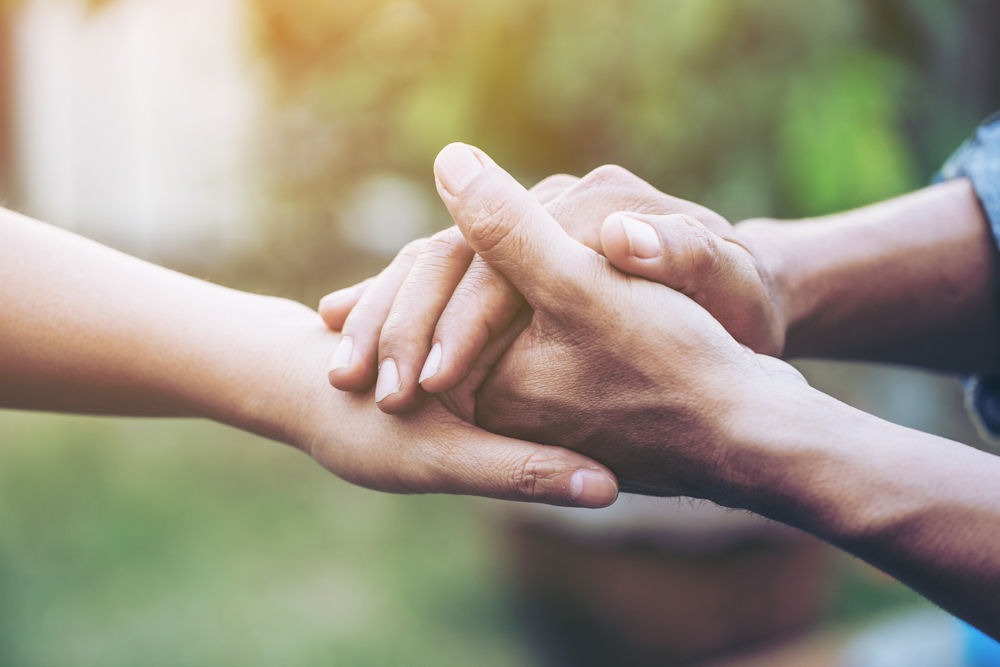Recovery is a lifelong journey that impacts every aspect of a person’s life. While the first step in recovery is going to rehab and participating in a treatment program, it’s what happens after rehab that is crucial. When a person leaves treatment and returns to the real world, full of temptations and triggers, they are constantly tested when it comes to their sobriety.
Having a strong support system is crucial. Support systems can comprise those you had previous relationships with or even those you have more recently bonded with. It’s important though, that the support system be comprised of only those who are supportive of your sobriety, even if that means abandoning previous relationships.
In this blog, we will explore the connection between relationships and recovery, including how addiction affects relationships, highlight the importance of those healthy connections, and provide some tips for navigating relationships in recovery, both romantic and platonic.
How Addiction Affects Relationships
 Addiction is a disease that doesn’t just affect the person suffering, but often those who that person comes in contact with as well. This can include friends, family members, loved ones, coworkers, and others in the community that the person suffering from addiction often interacts with.
Addiction is a disease that doesn’t just affect the person suffering, but often those who that person comes in contact with as well. This can include friends, family members, loved ones, coworkers, and others in the community that the person suffering from addiction often interacts with.
As you can imagine, the complications that come with addiction can also often lead to negative impacts when it comes to the person’s relationship with those around them. The nature of addiction often leads to a breakdown of trust, communication, and mutual respect, creating a fertile ground for conflict, resentment, and isolation. Additionally, the prioritization of substance use substance use over relationships can lead to neglect, dishonesty, and behavior that strains or even destroys many of these relationships.
Luckily, as part of the recovery process, those in treatment not only learn how their substance use negatively impacted those around them, but it also allows them the opportunity not just to fix previously damaged relationships, but also foster new, healthy ones.
Doing so isn’t easy though, there may be some who are not willing to forgive and forget, or some who may not forgive quickly and easily. Mending previously harmed relationships requires a commitment from both parties to show that changes have been made.
Identifying Unhealthy Relationships
In some cases, certain relationships may not be worth saving. While that may sound harsh, in recovery it is important to be very careful when it comes to the people you surround yourself with.
For many, the people they surrounded themselves with when they were using and abusing substances were those who were using and abusing either the same or similar illicit substances. Those are people you don’t want around in your new, sober life.
While that’s one example of an unhealthy relationship it is hardly the only one. Unhealthy relationships can manifest in various forms, including:
Establishing clear and healthy boundaries is crucial during recovery. By creating clear boundaries, you can help protect your sobriety by maintaining a supportive and positive environment.
Codependency is a common issue in relationships affected by addiction. It involves an unhealthy reliance on another person for emotional or psychological support. In such relationships, one person may enable the other’s addiction to maintain control or avoid conflict, perpetuating a cycle of dependency and dysfunction. Recognizing and addressing codependent behaviors is vital for both partners to heal and grow independently.
Enabling behavior, often mistaken for helping, involves actions that allow the person suffering from addiction to continue their substance use. This can include providing financial support, making excuses for their behavior, or shielding them from the consequences of their actions. Being around enabling people, especially in recovery, can lead to a major setback in the recovery process.
It’s also important to remember that any unhealthy relationships can have a negative impact on the recovery process and may even lead to a relapse.
The Value Of Healthy Relationships
As you can see, focusing on healthy relationships in recovery is a vital part of the overall long-term success of the recovery process. Not only do healthy relationships provide emotional support, encouragement, and a sense of belonging, but they can also boost self-esteem, reduce feelings of isolation, and offer a stable foundation for personal growth.
Common Social Issues People Face In Recovery
We touched on it before but it’s important to mention it again. Repairing previously damaged relationships and forming new, healthy relationships isn’t easy and it isn’t going to happen overnight. It requires work and dedication from both sides to be successful.
It’s important to remember this, especially early on in the recovery process so you don’t get discouraged. It is not uncommon to encounter several different social challenges early on in recovery.
Examples of some common social issues include:
- Rebuilding trust
- Navigating social stigmas
- Managing changes in social circles
While these challenges can be daunting at times, they also prevent opportunities for not just personal growth and development but also a chance at a fresh start.
Benefits of Social Support In Addiction Recovery
Having a strong support system is a cornerstone of recovery. From the early days of treatment, those in recovery are encouraged to surround themselves with people who are there for them and support them through group therapy and meetings.
Surrounding yourself, and engaging with supportive people can provide motivation, accountability, and practical assistance. Support groups specifically, can provide an extra layer of support as they are set up not just to be a safe space, but a safe space surrounded by others who understand the challenges that come with the recovery process.
How to Rebuild Relationships After Rehab
The transition from rehab to daily life is a critical phase in recovery, and rebuilding relationships is a significant part of this process.
Here are some things you can do to rebuild relationships after your time in treatment is complete:
Effective communication is the foundation of any healthy relationship. Learning to express your feelings and needs clearly and listening actively to others can prevent misunderstandings and conflicts. Additionally, developing healthy coping skills to manage stress and emotions can enhance your interactions and relationships.
As you progress in your recovery, it may become evident that certain relationships are detrimental to your well-being. Identifying and distancing yourself from these toxic relationships is necessary to maintain your sobriety and mental health. This may involve making difficult decisions, but prioritizing your recovery is paramount.
Tips For Navigating Recovery After Rehab

The only way to be successful post-rehab is to continue to work on your sobriety every day. While it may feel like a daunting task at times, letting your guard down and allowing yourself to fall back into old habits can be detrimental and even lead to relapse.
So, how can you be successful in navigating your new, sober life after you have finished treatment? Here are some helpful tips and tricks:
- Assess and Reflect – Make sure you take time to reflect on past transgressions, including past relationships. After all, if we don’t learn from our past mistakes how can we ever truly move forward?
- Set Clear Goals – Define what you want to achieve in your relationships and set realistic goals. This might include rebuilding trust, improving communication, or establishing new connections.
- Continue to Seek Professional Help – Just because you have finished treatment doesn’t mean you still can’t turn to a therapist or counselor to help guide you through your new, sober life. Continuing therapy can provide guidance and support as you navigate life’s challenges, including when it comes to relationships.
- Patience and Persistence – Whether you are rebuilding an existing relationship or creating a new one, it is going to take time. Be patient with yourself and others, and remain persistent in your efforts to create positive changes.
- Open Communication – Foster open and honest communication with your loved ones. Share your progress, challenges, and feelings, and encourage them to do the same.
- Practice Empathy – It’s important to remember that not everyone is willing to work on repairing a relationship in the same timeframe that you are. Showing empathy and allowing them to come to the table on their own time will help show them that you have changed.
Addressing Old Friendships and Establishing New, Healthy Relationships
Recovery often necessitates reevaluating old friendships and making room for new, healthier connections.
Below are some tips for addressing old friendships and fostering new relationships:
- Assess Old Friendships – If an old relationship is no longer healthy for you then it’s ok to break it off.
- Communicate Your Needs – Whether it’s an old relationship or a new one, clearly communicate what you need out of the relationship.
- Find Like-Minded Individuals – Surround yourself with people who share common interests and goals.
- Be Open To New People – Being open to forming bonds with people who you previously might not have can enrich your recovery and also open your eyes to new experiences in life.

Learn More About Relationships in Recovery at Laguna Shores
At Luna Recovery, we understand the importance of fostering healthy relationships throughout the recovery process. That’s why in addition to our group therapy programs we also offer 12-step programs to help foster a sense of community and allow everyone to build a support system while in treatment.
For more information about our treatment programs, or to learn how we can help you or a loved one get started on the road to recovery, contact us today.

 Matthew Beck B.A, M.A, LMFT
Matthew Beck B.A, M.A, LMFT 


